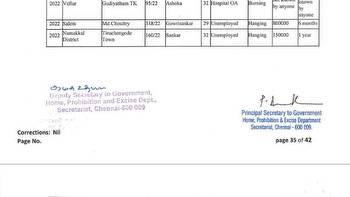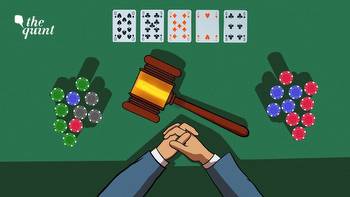Tamil Nadu anti-online gambling law: Madras High Court refuses interim protection to online gaming companies

The Madras High Court on Thursday refused to restrain the Tamil Nadu government from taking any coercive action against online gaming companies until the disposal of a batch of cases filed by them challenging the constitutional validity of the Tamil Nadu Prohibition of Online Gambling and Regulation of Online Games Act, 2022.
Acting Chief Justice T. Raja and Justice D. Bharatha Chakravarthy desisted from passing any kind of interim orders in favour of the online gaming companies despite being told that the companies might have to shut shop if no interim protection was granted to them until the challenge to the new law was decided by the court.
Stating that a call on the issue could be taken only after ordering notice to the State government and granting time for filing a counter-affidavit, the first Division Bench asked Advocate-General R. Shunmugasundaram to make sure that the government’s written response to the batch of cases was filed within six weeks.
During arguments, Senior Counsel Abhishek Manu Singhvi, representing Gameskraft Technologies Private Limited of Bengaluru, said the Supreme Court as well as various High Courts had consistently differentiated between games of skill and games of chance, besides categorically holding that rummy was a game of skill.
Even with respect to a game such as Bridge, in which there was some amount of chance involved depending upon the cards that a player got, the courts had adopted the predominance test to decide whether it could be categorised as a game of skill or that of chance. In such circumstances, how could the 2022 law ban online rummy, he wondered.
The senior counsel said the State could not be heard to say that rummy could be played offline but not online when it was much better and safer to play it online without the possibility of manipulation. He also said playing the game with stakes or without stakes would also hardly make any difference and termed any such distinction a red herring.
When the judges wanted to know why the State should not ban online gambling when it was found to be the root cause of several suicides and poverty among families, Mr. Singhvi said the government had not produced any data or study report to prove the claim of social evil but had made only some anecdotal comments.
Senior Counsel C. Aryama Sundaram, representing the All India Gaming Federation comprising 60 members, said the State government could bring in a law to prevent a social evil, provided it enjoyed the legislative competence to do so. In the present case, the subject was within the domain of the Centre and not the State, he argued.
He pointed out that the State legislature had enacted the present law by exercising its power under Entry 34 of List II (the State List) in the Seventh Schedule to the Constitution. The Entry empowers it to enact laws with respect to betting and gambling, he said, contending that even such a law could not be passed with respect to the games of skill.
On the other hand, referring to Entry 31 of List I (the Union List) that empowers the Union to legislate on wireless communication, he said the Centre had already exercised that power and come up with a robust framework under the Information Technology Act, 2000, to regulate the activities of online gaming companies.
Further, the Tamil Nadu Gaming Act had been in existence since 1930 to regulate the physical games. The State government amended it in 2021 for banning online games, but the then first Division Bench of the High Court struck down the amendment. The 2022 law was no different from the 2021 amendment, he claimed.
However, Senior Counsel Kapil Sibal, representing the Tamil Nadu government, argued that the principle of occupied field would apply only to subjects found in List III (the Concurrent List) and not to matters that were exclusively in the domain of the State legislature. He said the intermediary rules framed by the Centre under the IT Act actually impinge upon the State’s powers.
Asserting that the State government was fully empowered to prosecute online gaming companies, he said the 2022 Act was completely different from the 2021 amendment to the 1930 Act and therefore, the petitioners before the court could not hinge upon the Division Bench judgment through which the amendment was struck down.
Taking the judges through some of the provisions of the 2022 Act, Mr. Sibal said Section 2(1)(l) of the Act defines the term ‘online game of chance’ to include any online game which involves both an element of chance and element of skill and in which the element of chance dominates the element of skill.
Winding up his submissions, the senior counsel said, “My last point is that it is private interest versus public interest. These online gaming platforms are there to make money and destroy the lives of families. Your Lordships will have to decide how to interpret an Act which provides for protection of families in this State.”
He concluded by saying, “Your Lordships will have to look at the intent behind the statute and not the sophistry of words which says that there is a threat of prosecution and so grant me protection. My Lords, if protection is needed, we need to protect the people of Tamil Nadu. That’s what we need at present.”






























